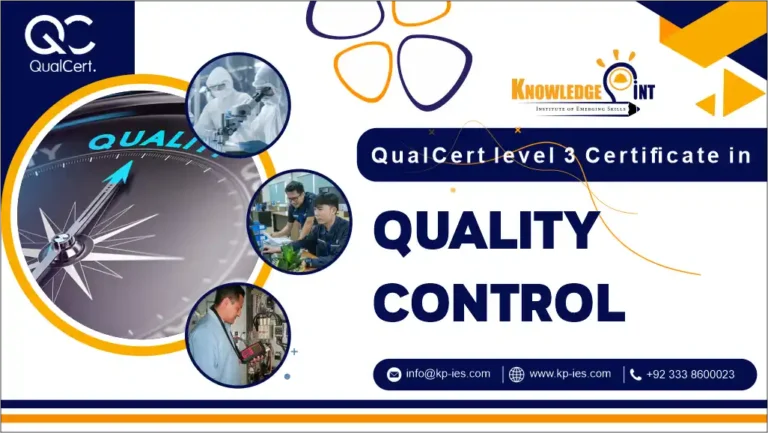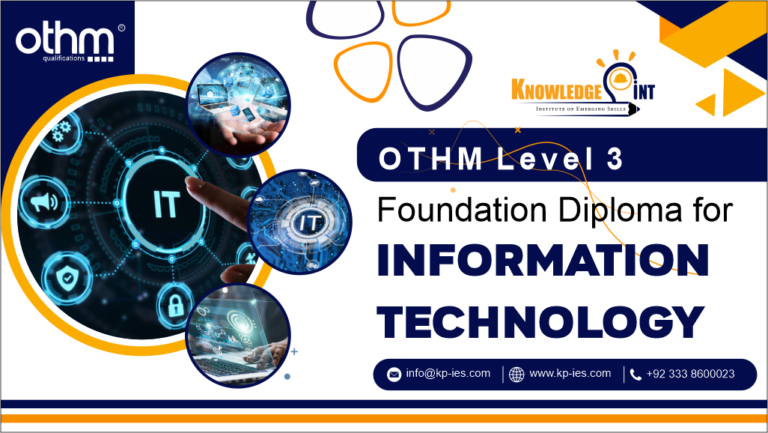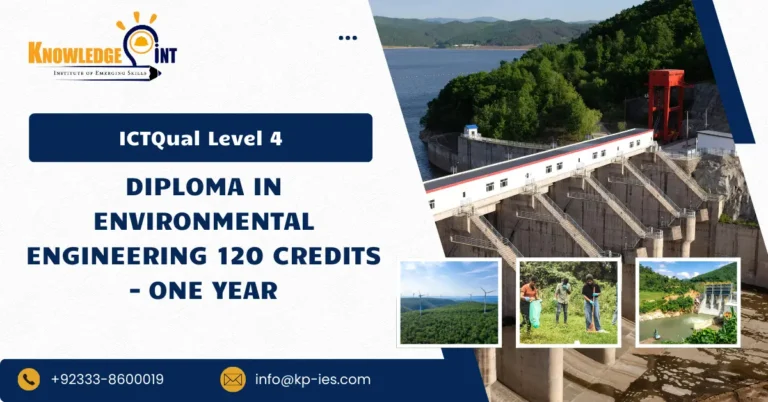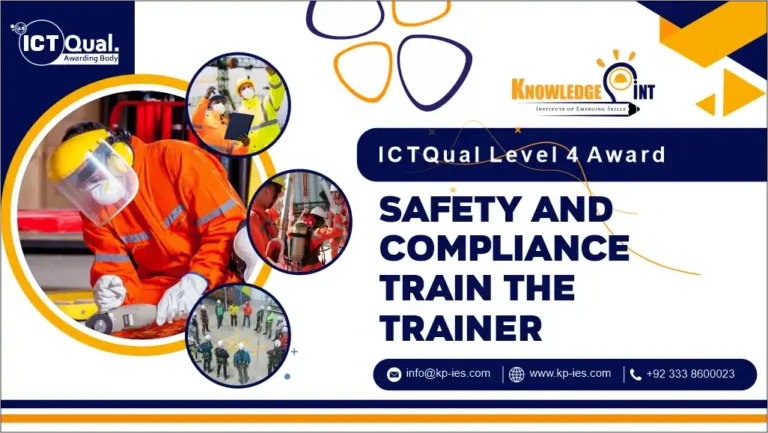Chemical engineering is at the forefront of solving some of the world’s most pressing challenges, from sustainable energy production to efficient manufacturing processes. The ICTQual Level 5 Diploma in Chemical Engineering offers an advanced pathway for those eager to build a career in this dynamic and essential field. With a focus on developing technical expertise and practical skills, the ICTQual Level 5 Diploma is designed for individuals who want to pursue professional roles in chemical engineering. This 240-credit, two-year program covers a comprehensive range of topics, blending theoretical knowledge with hands-on experience to ensure that graduates are industry-ready.
The ICTQual Level 5 Diploma in Chemical Engineering is a specialized qualification aimed at students who wish to further their knowledge in the field of chemical engineering. This two-year course is structured to provide a balanced blend of theory, practical skills, and industry applications, ensuring graduates can thrive in various sectors, including energy, manufacturing, pharmaceuticals, and environmental services.
The ICTQual Level 5 Diploma in Chemical Engineering is a valuable qualification for those aspiring to work in one of the most dynamic and impactful engineering fields. Through its comprehensive curriculum, hands-on learning opportunities, and focus on real-world applications, this two-year program equips students with the knowledge and skills needed to excel in the chemical engineering industry.
Course Overview
The ICTQual Level 5 Diploma in Chemical Engineering 240 Credits – Two Years consists of 24 mandatory units which are as follows.
Year 1 (120 Credits)
Semester 1
- Introduction to Chemical Engineering Principles
- Engineering Mathematics and Statistics
- Material and Energy Balances
- Thermodynamics
- Chemistry for Engineers
- Fluid Mechanics
Semester 2
- Heat Transfer Processes
- Chemical Process Industries
- Mechanical Properties of Materials
- Laboratory Skills and Safety
- Environmental Science and Sustainability
- Technical Communication and Report Writing
Year 2 (120 Credits)
Semester 1
- Advanced Thermodynamics
- Advance Fluid Mechanics
- Process Control and Instrumentation
- Chemical Reaction Engineering
- Separation Processes
- Industrial Health and Safety Management
Semester 2
- Chemical Process Design and Simulation
- Advanced Separation Processes
- Energy Systems and Renewable Technologies
- Advance Chemical Reaction Engineering
- Industrial Project Management
- Research Project in Chemical Engineering
The future progression of the ICTQual Level 5 Diploma in Chemical Engineering 240 Credits – Two Years can lead learners towards several pathways, depending on their career goals and aspirations in the field of law and related sectors. Here are some potential avenues of progression:
Year 1 (120 Credits)
Semester 1
- Introduction to Chemical Engineering Principles
- Demonstrate an understanding of the role and scope of chemical engineering.
- Identify and explain the key concepts such as material and energy balances, unit operations, and process design.
- Engineering Mathematics and Statistics
- Apply mathematical methods such as calculus, differential equations, and statistics to solve chemical engineering problems.
- Use statistical tools to analyze experimental data and model chemical processes.
- Material and Energy Balances
- Perform material and energy balance calculations for simple and complex chemical processes.
- Apply the principles of conservation of mass and energy to process systems.
- Thermodynamics
- Understand and apply the fundamental laws of thermodynamics in chemical engineering processes.
- Analyze thermodynamic cycles, phase equilibria, and chemical equilibrium for real-world applications.
- Chemistry for Engineers
- Apply basic chemical principles such as stoichiometry, chemical reactions, and equilibrium to chemical engineering problems.
- Understand the role of chemistry in industrial applications and process design.
- Fluid Mechanics
- Understand the behavior of fluids and their flow characteristics in chemical engineering systems.
- Solve fluid flow problems using relevant equations and principles, including pressure drop, pump design, and flow rate calculations.
Semester 2
- Heat Transfer Processes
- Understand the principles of heat transfer, including conduction, convection, and radiation.
- Apply heat transfer principles to the design of heat exchangers and other thermal systems in chemical processes.
- Chemical Process Industries
- Gain knowledge of various chemical industries and the processes involved in manufacturing chemicals, pharmaceuticals, and petrochemicals.
- Understand the applications of chemical engineering in industrial settings and the challenges faced by the industry.
- Mechanical Properties of Materials
- Study the mechanical properties of materials commonly used in chemical engineering, including strength, elasticity, and plasticity.
- Understand material selection and failure analysis in the context of chemical engineering applications.
- Laboratory Skills and Safety
- Develop essential laboratory skills, including safe handling of chemicals, proper use of laboratory equipment, and accurate data collection.
- Understand and adhere to laboratory safety protocols and risk assessment practices.
- Environmental Science and Sustainability
- Understand the environmental impact of chemical engineering processes, including pollution control and waste management.
- Develop sustainable practices for reducing environmental harm and improving resource efficiency in chemical engineering operations.
- Technical Communication and Report Writing
- Develop technical writing skills for preparing reports, research papers, and documentation related to chemical engineering.
- Communicate complex chemical engineering concepts clearly and concisely, both in written and oral formats.
Year 2 (120 Credits)
Semester 1
- Advanced Thermodynamics
- Apply advanced thermodynamics concepts, such as exergy, enthalpy, and entropy, to real-world chemical systems.
- Analyze and solve complex thermodynamic problems, including non-ideal systems and multi-component mixtures.
- Advanced Fluid Mechanics
- Explore advanced concepts in fluid mechanics, including turbulent flow, non-Newtonian fluids, and multiphase flow.
- Apply advanced fluid dynamics principles to the design and optimization of chemical processing systems.
- Process Control and Instrumentation
- Understand the principles of process control systems and instrumentation.
- Design and implement control systems to regulate chemical processes and improve system performance.
- Chemical Reaction Engineering
- Study the kinetics of chemical reactions and the design of reactors.
- Apply reaction engineering principles to the design and operation of chemical reactors, including batch, continuous, and catalytic reactors.
- Separation Processes
- Understand the principles and design of advanced separation processes such as distillation, filtration, and membrane-based separations.
- Analyze and optimize separation systems for industrial applications.
- Industrial Health and Safety Management
- Develop an understanding of industrial health and safety practices and their application in chemical engineering environments.
- Apply risk management strategies, including hazard analysis, emergency response, and safety audits, to chemical engineering projects.
Semester 2
- Chemical Process Design and Simulation
- Apply principles of process design to create chemical engineering flowsheets and process diagrams.
- Use process simulation software to model, analyze, and optimize chemical processes.
- Advanced Separation Processes
- Explore advanced techniques for separation processes, including membrane filtration, chromatography, and cryogenic distillation.
- Design and optimize advanced separation systems to improve efficiency and reduce energy consumption.
- Energy Systems and Renewable Technologies
- Understand the role of chemical engineering in energy production, including renewable energy systems like solar, wind, and bioenergy.
- Analyze and design energy-efficient processes to optimize resource use and reduce environmental impact.
- Advanced Chemical Reaction Engineering
- Study more complex reaction systems, including heterogeneous catalysis, enzyme catalysis, and bioengineering reactions.
- Apply advanced reaction engineering techniques to optimize reactor design and improve process efficiency.
- Industrial Project Management
- Develop project management skills for planning, budgeting, and overseeing chemical engineering projects.
- Learn to manage project teams, resources, timelines, and risks, ensuring the successful delivery of projects within scope and budget.
- Research Project in Chemical Engineering
- Conduct independent research on a chemical engineering topic, demonstrating the ability to apply academic knowledge to solve real-world problems.
- Present findings in a research report, showcasing problem-solving, critical thinking, and technical communication skills.
Course Benefits of the ICTQual Level 5 Diploma in Chemical Engineering 240 Credits – Two Years :
1. Comprehensive Knowledge and Skills
The course provides a broad foundation in agricultural engineering, combining essential knowledge in soil science, crop physiology, farm machinery, irrigation, and environmental sustainability. Graduates will be equipped with a diverse skill set that covers both the technical and theoretical aspects of modern agriculture. This multi-disciplinary approach ensures you can handle various challenges in the field.
2. Industry-Relevant Curriculum
The diploma is designed with input from industry professionals, ensuring that the curriculum remains aligned with the latest trends, technologies, and needs of the agricultural sector. With topics ranging from precision farming and renewable energy to advanced farm machinery and irrigation systems, students gain expertise in cutting-edge practices.
3. Hands-On Practical Training
The program includes practical training through workshops, fieldwork, and real-world projects. Students gain valuable hands-on experience with agricultural tools, machinery, and technology, allowing them to apply theoretical knowledge in practical settings. This ensures that graduates are work-ready and confident in their skills.
4. Career Flexibility and Opportunities
Graduates of the ICTQual Level 6 Diploma in Agricultural Engineering have a wide array of career opportunities in various sectors, including farming, agribusiness, machinery manufacturing, research, environmental consultancy, and renewable energy systems. The knowledge gained opens doors to positions such as agricultural engineers, farm management consultants, precision farming experts, and sustainability advisors.
5. Focus on Sustainability and Innovation
With increasing global concerns about food security, climate change, and sustainability, agricultural engineers are at the forefront of designing and implementing solutions that address these challenges. The diploma focuses on sustainable farming practices, climate-smart agriculture, renewable energy systems, and innovative technologies that help reduce agriculture’s environmental impact.
6. Strong Foundation for Further Education
For students interested in pursuing advanced degrees or specialized certifications, this diploma serves as a solid foundation for further studies in agricultural engineering, environmental science, or related fields. The research methods and final project component of the course also provide valuable experience for students who wish to pursue research roles.
7. High Demand for Agricultural Engineers
As the global agricultural industry increasingly relies on technology to improve productivity and sustainability, the demand for skilled agricultural engineers continues to rise. The course prepares graduates to meet this demand by equipping them with expertise in agricultural technology, automation, and resource management.
8. Contribution to Global Food Security
Agricultural engineers play a crucial role in addressing global food shortages, improving farming efficiency, and ensuring food security. By completing this course, you will be equipped to contribute to the development of innovative, sustainable solutions that increase agricultural productivity and support global food systems.
9. Exposure to Cutting-Edge Technologies
Students will be introduced to the latest agricultural technologies such as GPS, GIS, automation, and precision farming tools. With this exposure, graduates are prepared to lead in the field of agri-tech, using data-driven solutions to improve farming practices and operational efficiency.
10. Networking and Industry Connections
The program offers opportunities to connect with professionals, experts, and organizations in the agricultural engineering and agribusiness sectors. Networking during the course can lead to valuable internships, job opportunities, and collaborations, setting the stage for a successful career in the industry.
The ICTQual Level 5 Diploma in Chemical Engineering 240 Credits – Two Years offers numerous opportunities for progression, both academically and professionally. As the agricultural industry embraces technological advancements and sustainability, the skills and knowledge acquired from this course provide graduates with a variety of pathways to enhance their careers and contribute to shaping the future of agriculture. Below are the key progression routes:
1. Advanced Higher Education Opportunities
Postgraduate Degrees
Graduates of the ICTQual Level 6 Diploma have the opportunity to pursue postgraduate studies to further specialize in agricultural engineering or related fields:
- Master’s in Agricultural Engineering: Specializing in advanced agricultural technologies, machinery design, or sustainable farming practices.
- Master’s in Environmental Engineering or Sustainability: Focusing on sustainable agriculture, resource management, and climate change mitigation in the agricultural sector.
- Master’s in Precision Agriculture or Agri-Tech: Delving into technologies such as IoT, artificial intelligence, and data-driven farming systems.
- Research-Based Programs: Pursuing a research-focused master’s or PhD program to contribute to innovations in agricultural practices, technology, and food security.
Specialized Certifications and Diplomas
For further specialization, graduates may opt for certifications or diplomas in areas such as:
- Precision farming systems
- Agricultural automation and robotics
- Renewable energy applications in agriculture
- Irrigation systems design
- Agro-processing technologies
2. Professional Development and Certification
Industry-Specific Certifications
As the agricultural sector continues to evolve with new technologies, graduates can enhance their credentials by pursuing professional certifications, including:
- Certified Agricultural Engineer (CEngAgric): A certification that demonstrates professional competence in agricultural engineering.
- Certified Irrigation Designer (CID): Specializing in the design and management of irrigation systems.
- Project Management Certifications: Ideal for graduates interested in managing large-scale agricultural engineering projects. Certifications like PMP (Project Management Professional) or PRINCE2 are highly valued.
- Agri-Tech Specialist Certifications: As agricultural technology advances, certifications in areas like precision farming, automation, and digital farming tools are increasingly in demand.
3. Career Progression in the Agricultural Sector
Leadership Roles
Graduates with the ICTQual Level 6 Diploma can pursue leadership roles across a range of agricultural sectors, such as:
- Agricultural Engineer
- Farm Operations Manager
- Sustainability Consultant
- Technical Director in Agri-Tech Companies
- Agribusiness Manager
- Renewable Energy Systems Manager for Farms
Entrepreneurial Opportunities
Graduates can also take the entrepreneurial route by starting their own businesses or consultancy services. Potential areas for innovation include:
- Agricultural machinery design and manufacturing
- Irrigation system solutions
- Renewable energy installations for farms
- Smart farming solutions and sustainable agriculture practices
- Agro-processing services and solutions
4. Specialization in Cutting-Edge Agricultural Technologies
With the continuous advancement of technology in agriculture, graduates can specialize in emerging areas, including:
Agri-Tech Innovation
- Developing and implementing new technologies like drone-assisted farming, robotic harvesters, and autonomous tractors.
- Utilizing data analytics, machine learning, and artificial intelligence to improve farming practices and optimize resource use.
Climate-Smart Agriculture
- Designing solutions that help farmers adapt to climate change, such as water-efficient irrigation systems and resilient crop varieties.
- Promoting carbon-neutral farming and other environmentally-friendly agricultural practices.
Renewable Energy Integration
- Specializing in renewable energy systems for agriculture, such as solar, wind, and biogas solutions.
- Designing energy-efficient systems for farms to reduce operational costs and improve sustainability.
5. International Opportunities and Global Impact
Graduates of this diploma can also explore international career opportunities, where the demand for skilled agricultural engineers is high:
- International Development Projects: Work with global organizations, NGOs, or government agencies to implement sustainable agricultural practices in developing regions.
- Global Agri-Tech Companies: As the agri-tech sector grows worldwide, there are opportunities to work with companies that develop smart farming solutions and technologies.
- Collaboration with NGOs: Engineers can contribute to food security and agricultural development initiatives in regions facing challenges in food production.
6. Research and Innovation
For those interested in advancing the field through research, there are multiple opportunities to contribute to agricultural innovations:
- Agricultural Researcher or Scientist: Work with universities, research institutes, or private companies to develop new technologies and practices that improve productivity and sustainability in agriculture.
- Collaborative Projects: Participate in research projects that aim to improve agricultural practices through technology, sustainability, and innovation.
- Product Development: Work on developing new agricultural machinery, automation systems, and other innovative technologies that address the challenges facing modern farming.







